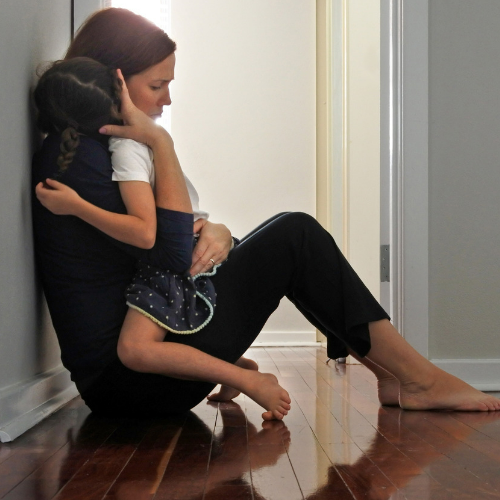How to respond if a child discloses abuse
The most important response is, that you believe the child!

When a child reveals abuse, it is understandably shocking and devastating to hear. Parents may experience a range of emotions, including disbelief, anger, and sadness. This can be traumatic for the entire family. However, it is crucial for parents to set aside their emotions momentarily and offer the child the appropriate response.
The most important part of your response is to believe the child. It takes immense courage for a child to disclose abuse, and they are often fragile at this point. Many children who experience sexual abuse are subjected to threats against their own, and or their family’s safety. They may also have been led to believe that the abuse is their fault and that there will be repercussions for them.
When responding to a disclosure, it is essential to remain calm and composed. Showing strong emotions may cause the child to withdraw and retract their disclosure. Instead, provide a supportive and reassuring environment. Let the child know that you believe them and that it is not their fault. Assure them that they did the right thing by telling you and that you will do everything in your power to help them.
Listening carefully and without judgment is key. Allow the child to talk as freely and express their feelings as they feel comfortable to do. Avoid asking questions, making judgmental comments or showing disbelief, as this can further traumatize the child. Instead, validate their feelings and let them know that you are there to support them.
It is also important to take immediate steps to ensure the child’s safety. Report the abuse to the appropriate authorities, such as the local Child Protection Agency or the police.
Children don’t always divulge the full extent of the abuse. This can make it hard to know how to help. It’s better to be safe and seek professional support for them – engage an experienced CSA professional. The professional is a neutral person for them. And the child may find it easier to open up to them, especially if the perpetrator is a family member. CSA professionals will know how to talk with the child in a way that will lead them to begin the healing process. Which is so important.
We know it’s hard. But if parents can respond appropriately and support the child, it will go a long way in helping them heal and recover. I have listed some steps below as a guide to help in case you are ever in need.

Guide to help you respond
Stay calm and try to remember everything the child says. The best way to do this is to just listen.
Acknowledge the disclosure to the child. Say something like, “You are very brave for telling me. I am very proud of you; you have done the right thing “.
Listen – try not to ask questions. Children will usually disassociate when the abuse is occurring, therefore their memories may not be intact.
Don’t try and force the information. It may take months or even years for the incidents to be told.
Understand they are in crisis. They may not know what to say or what they can do, but they want help for the abuse to stop.
Tell the child, you are there for them and will keep them safe so that they will not be left alone with this person again. Do not make promises you can’t keep. E.g., If you say you will not leave alone them with the perpetrator – don’t leave them where the perpetrator can have access to them again.
Do not allow the perpetrator to approach the child.
Do not approach the perpetrator with accusations. Leave this to the relevant authorities.
Confirm to the child the perpetrator did the wrong thing – it is not their fault.
All abuse should be reported to appropriate authorities in your state.
Seek professional support. Engage an experienced child sexual assault therapist. This is important, especially if the child has silently suffered with this alone for some time, even years.
Discuss with the child what your next action will be to keep them safe. This should include reporting to authorities, putting boundaries in place to prevent access to the perpetrator again, and helping the child to seek professional help.
Be kind to yourself and seek out counseling for yourself too should this happen in your family.
